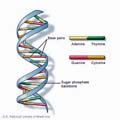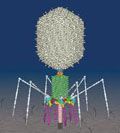There is still a great deal to learn about life, including how to define it. But the many sciences associated with biology are gradually uncovering the secrets of life, the most complex phenomenon known. Here are some basics.
Things to Know about Life

Life: Defining Life
The fine line between animate and inanimate, and between quasi-life and life. ....

Life: Evolution and Extinction
The long reign of bacteria, the eventual branching and diversification, symbiogenesis, the dramatic mass extinctions and resurgence of life...

Life: Extreme Forms of Life
The discovery of organisms thriving in extreme temperatures and conditions deep undersea, deep in the Earth, deep in the ice suggests that life, once it emerges, is extraordinarily resilient..

Life: Life beyond Earth
The basic chemical elements of life on Earth are the most abundant elements in the universe...Are the conditions right elsewhere?

Life: Origins of Life
The necessary ingredients and conditions; formation of life's molecules; Last Universal Common Ancestor (LUCA) ....

Life: Quasi-Life
Viruses, prions, bacteriophages ... all behave like living organisms but are not quite alive...

Life: States of Animacy
Hibernation, dormancy, suspended animation, revival from apparent death; the line between life and death...

Life: Synthetic Life
Partly in order to understand its amazing complexity, and partly in order to advance medical therapies. So, how do you create a viable cell?
